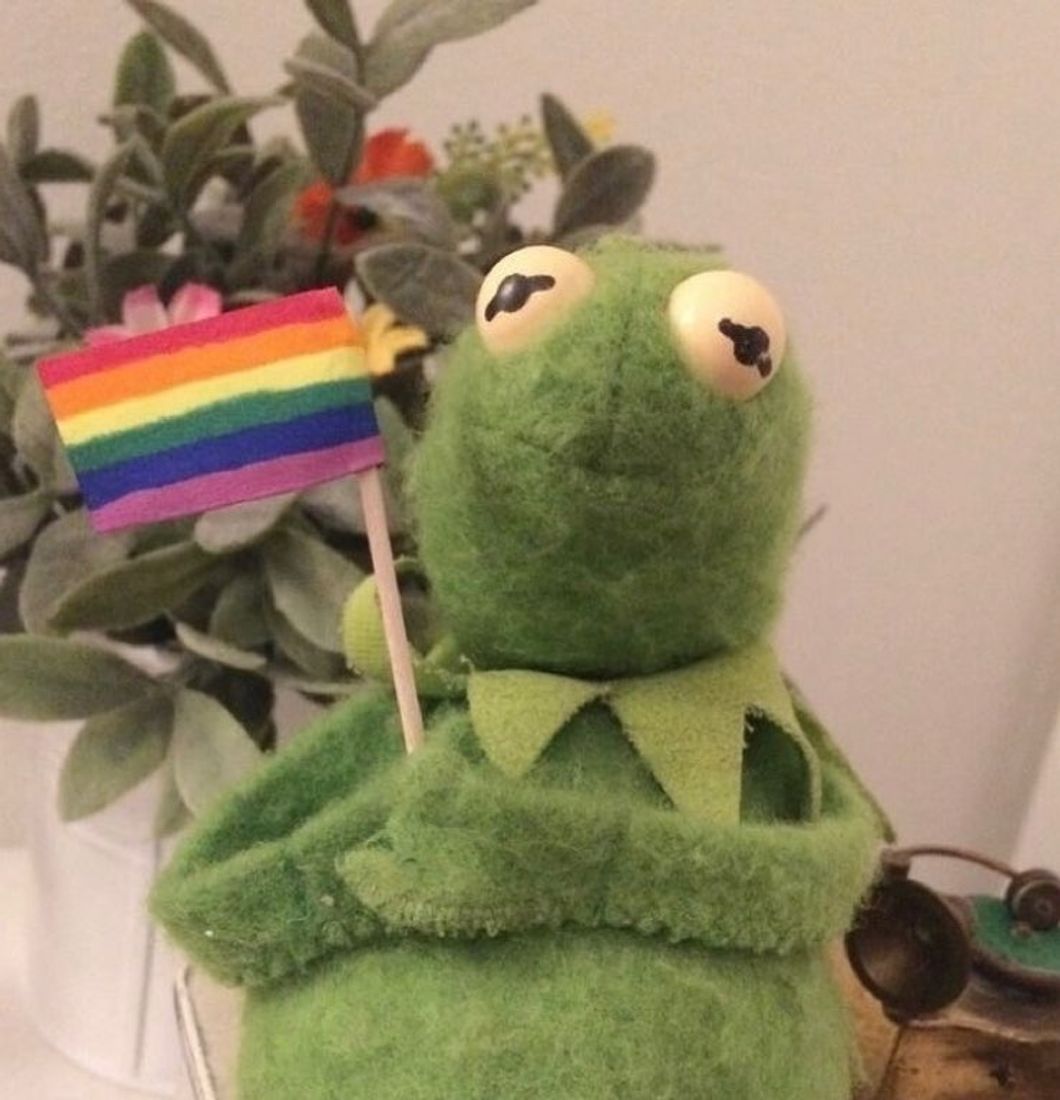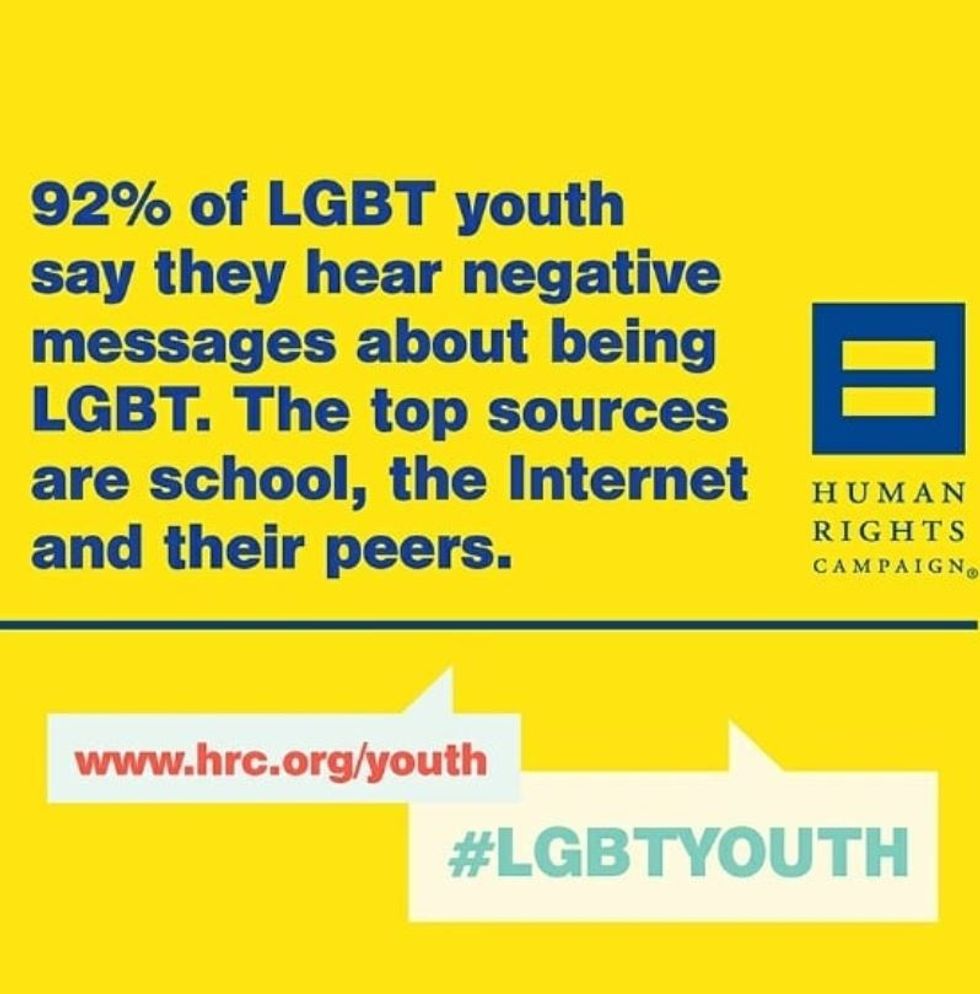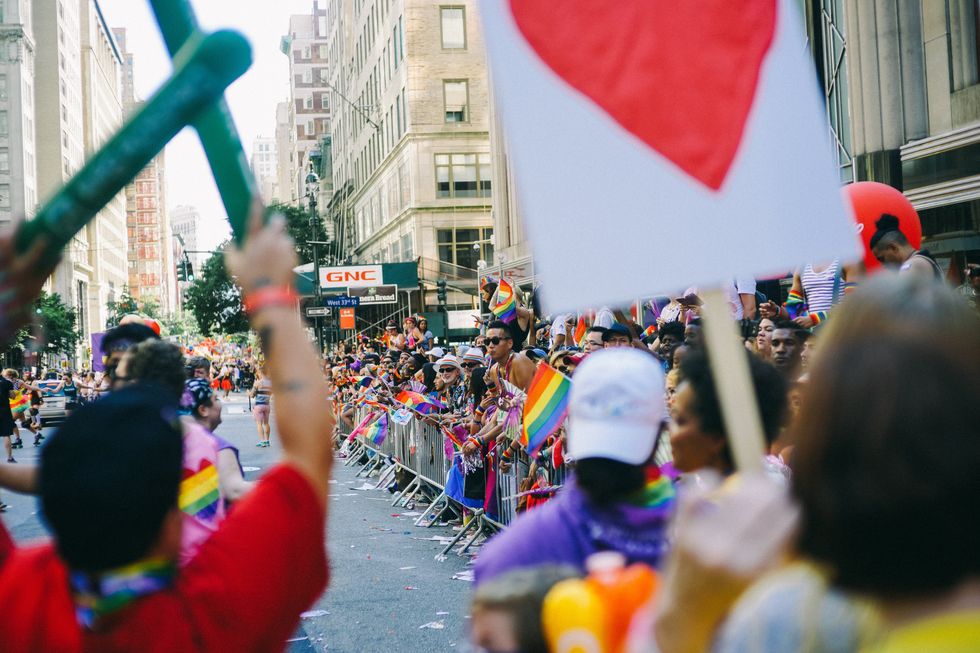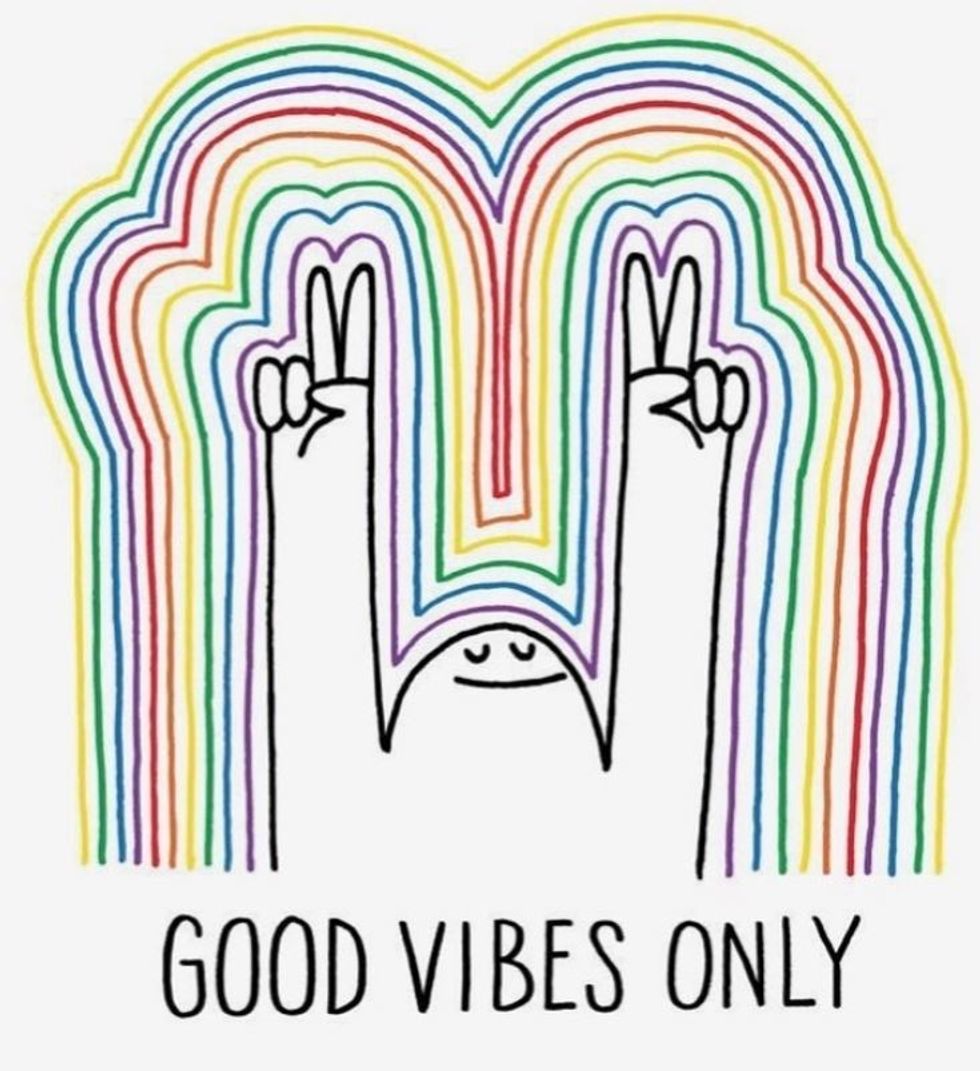"My car door won't open, this is so gay." "I hate our professor's lectures, he's literally so gay!"
Many well-intentioned teenagers claim that in slang, the word "gay" is not used in homophobic ways and that it's fine to use "gay" as an insult if it's not directed towards anybody who is actually gay. Teenagers claim that they'll use the word when talking about things they are unhappy with, but that doesn't mean they see anybody with a different sexual orientation as less than them.
In high school, I remember a teacher criticized a student after he muttered that some new school rule was "gay". After class, he started complaining to his friends that it was completely harmless slang and that the teacher was ignorant to say he was being offensive.
But was calling out the student ignorant or an address to the subtle derogation occurring with every improper utterance of the word?
We can't really discuss the word's usage without examining its history.
The origins of the word "gay" date back to the 1600s, when it meant showy, happy, and care-free. However, the word spun from meaning "care-free" to meaning so care-free as to have no regard for social etiquette or norms. It then became associated with being "addicted to pleasures" and simultaneously, sex. Because it still carried the connotation of having no regard for manners, "gay" became associated with prostitution, promiscuity, and even molestation. By the early 1900s, the word began referring vaguely to homosexuality, but the concept was still misunderstood and seen as unethical.
Eventually, the gay community claimed the label as their own, and in 1955, dictionaries started adding the definition of homosexuality to the term. People only understand the usage of "gay" as a casual insult because of its history, and this is why the word is used to denigrate rather than compliment in the modern day.
Some might argue that similar to how young children cannot be shielded from swear words forever, they cannot be shielded from degrading language. However, children who identify as LGBTQ+ and hear the word thrown around in slang are not just simply "offended."
Kids are impressionable, and kids who aren't straight already struggle to feel like they fit in among their straight peers - so hearing "gay" used as a synonym for "stupid" and "foolish" makes them think that THEY are stupid and foolish.
Consider this example from an article on The Good Men Project. Andy Grant talks about how when he was first ridiculed by being called gay during his childhood, he did not even know what it meant to have a different sexual orientation. Thus, when he learned about the concept of homosexuality, he equated it with being weird and stupid because as a child, he had heard the word "gay" used as a put-down. This illustrates how just a simple slang word can instill negative views of gay people in people's minds.
Sure, many people would argue that stopping the incorrect usage of the word "gay" will not end homophobia.
However, the equality movement has made enormous strides, especially over the past several years. We should be doing our best to advance the movement with our daily actions, starting with the basics.
Since the word "straight" is not used as an insult, using "gay" and related words as insults inhibits the movement by highlighting the divide between LGBTQ+ and straight people. This division is what leads to discrimination. Thus, if we put more attention to detail to what we are saying on a day-to-day basis, we can begin to eliminate this split that our language currently highlights.
We have the power to bring our society a little bit closer to equality and happiness by ensuring that our language is as inclusive as possible.
And, lastly, let me leave you with a bunch of words you could use INSTEAD of using gay as a slur:
Annoying. Stupid. Foolish. Irrational. Tedious. Unfortunate. Illogical. You can still make your point without being offensive!












































